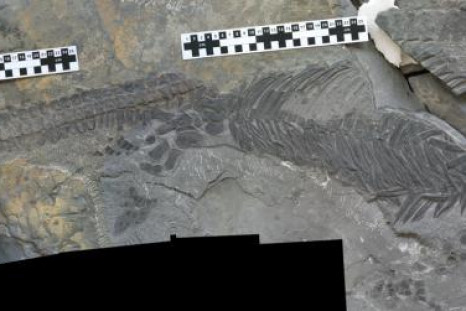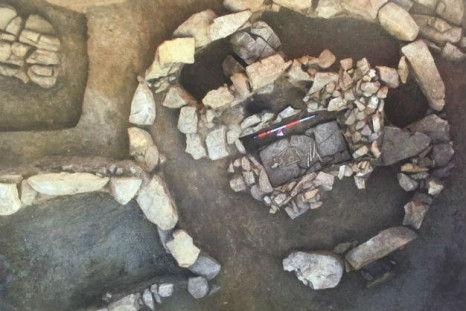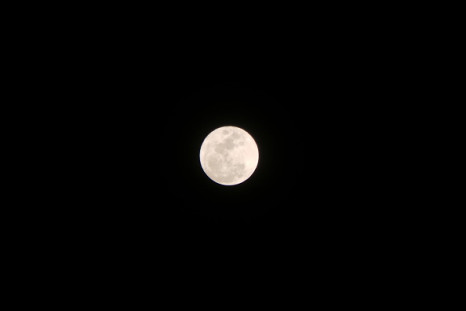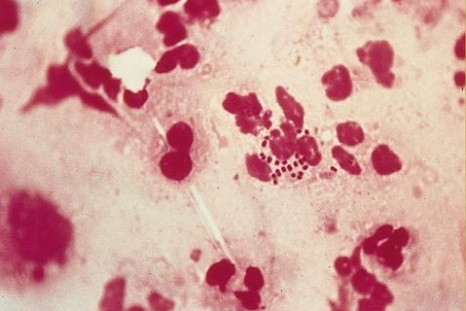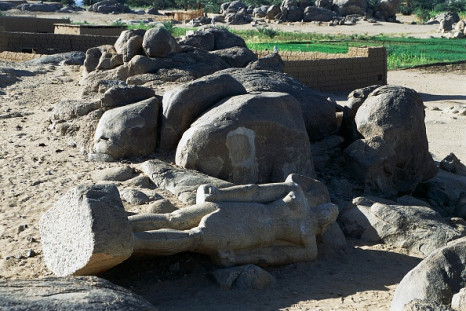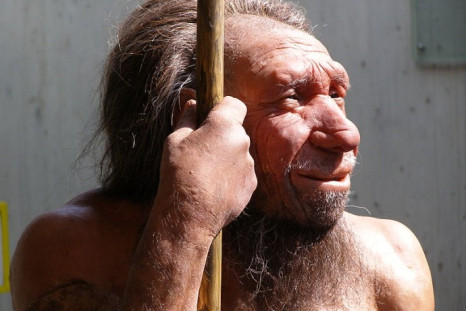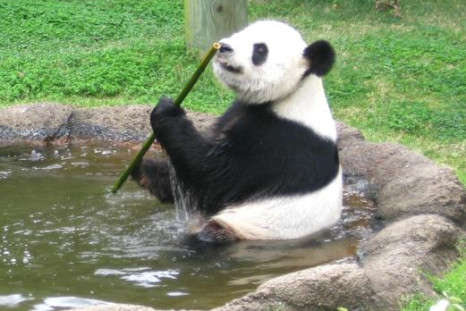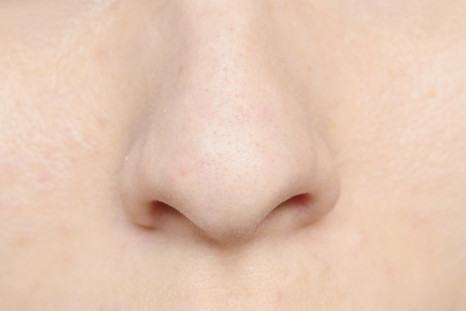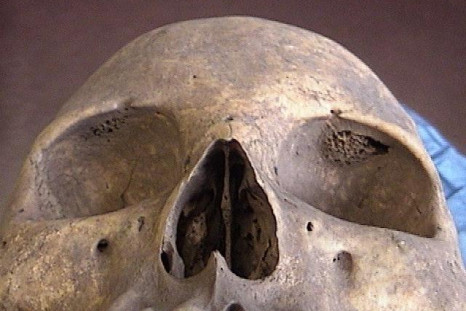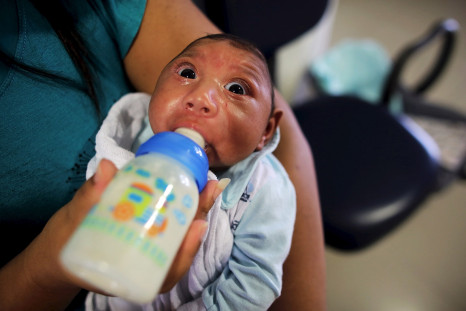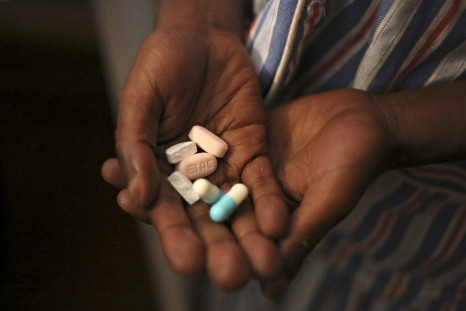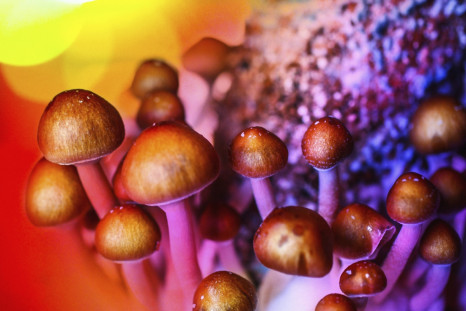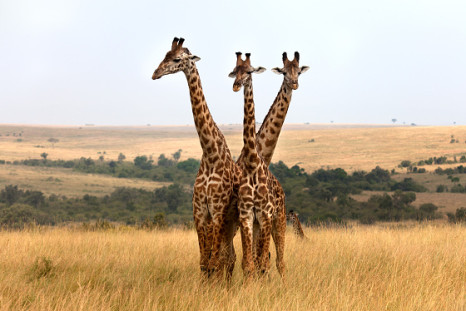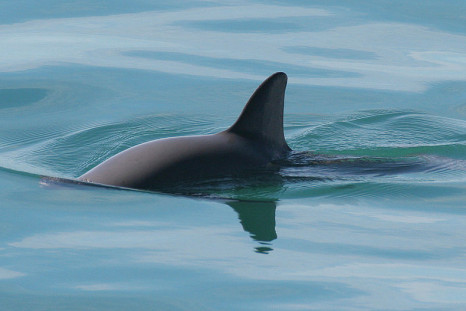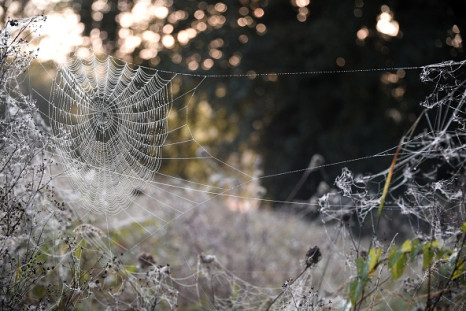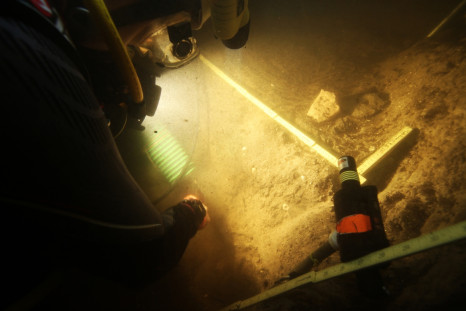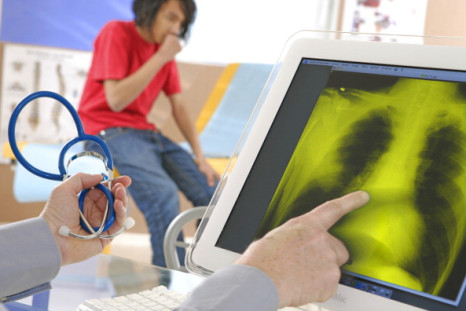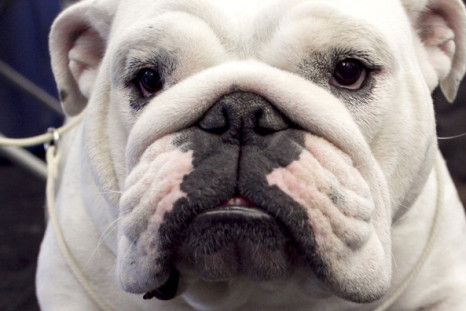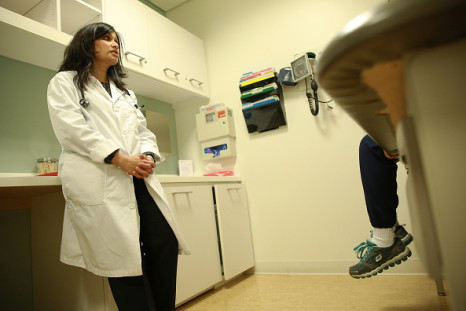More From Léa Surugue
Humans evolved superior intelligence to care for our helpless babies
Human babies are vulnerable, an evolutionary advantage to develop their parents' intelligence.
May 23, 2016
Disinfectants in swimming pools and hot tubs could be damaging our DNA
The products we use to clean pools and hot tubs may react with sweat and urine, causing potential DNA alterations.
May 23, 2016
Sclerocormus parviceps: Fast evolution of strange reptile sheds light on mass extinction events
Reptile fossil makes rapid evolution to adapt to post Permian-Triassic mass extinction era.
May 23, 2016
The truth about what happens when you swallow gum
Does chewing gum really stay in your system for years?
May 21, 2016
Turkey: 5,000-year-old Kurgan tomb of Bronze Age warrior discovered in Istanbul
A tomb discovered in Istanbul could further our understanding of cultures that lived there during Bronze Age.
May 21, 2016
Syphilis rates in men surging across Europe with 50% increase in UK, France and Germany
STD syphilis is affecting more and more people across Europe, older adults and men in particular.
May 20, 2016
Blue Moon: Meaning behind May's full flower moon and where to watch live online
This May's full moon is known both as a "blue moon" and a "flower moon".
May 20, 2016
Gonorrhoea treatment appears to speed the spread of antibiotic resistance
STI gonorrhoea is harder to treat with first-line antibiotic due to resistance with high treatment rates.
May 19, 2016
Ancient burial sites reveal Egyptian and Nubian cultures merged after fall of New Kingdom Empire
During the 'New Kingdom', Egypt ruled northern Sudan, leading to Egyptian and Nubian communities merging.
May 19, 2016
DNA of 35,000-year-old Homo sapiens reveals Palaeolithic migration back to Africa
DNA extracted from a Homo Sapiens suggest his population group may have migrated back to Africa from Eurasia.
May 19, 2016
Panda poop study sheds light on species' reproductive woes
Pandas are known to have low reproductive performances in captivity and digestive problems may be to blame.
May 19, 2016
Genes for nose shape and size shed light on evolution of our faces
Scientists have identified five genes which explain why our noses and chins are a certain size or shape.
May 19, 2016
Prehistoric 'extinct' skull condition is widespread in North America and South Africa
Study of 800 skeletons suggests skull condition linked to anaemia is not extinct as previously thought.
May 18, 2016
Zika virus outbreak looms over Europe's summer, warns WHO
Risks of a zika outbreak in Europe this summer are low or moderate, with significant differences across regions.
May 18, 2016
Potential HIV therapy prevents virus from multiplying after treatment is stopped
A type of therapeutic inhibitor could offer an alternative treatment for people living with HIV.
May 18, 2016
Magic mushrooms: Hallucinogenic compound in drug could help alleviate depression
A compound derived from 'magic mushrooms' has the potential to help people with treatment-resistant depression.
May 17, 2016
Why do giraffes have long necks?
Giraffes are among the world's tallest animals and the explanation could be gene-specific.
May 17, 2016
Cancer: HIV-infected patients are more likely to lack adequate treatment
People with HIV are less likely to be getting adequate treatment if they are diagnosed with cancer.
May 17, 2016
Vaquita porpoises on the brink of extinction with only 60 animals left
Totoabas are considered traditional seafood in China and Hong Kong, in the same vein as shark fin.
May 17, 2016
Why do spider webs never sag? Scientists create artificial webs to uncover mystery
Scientists have created artificial webs based on a hybrid material which reflects the capture silk's elasticity and solidity.
May 16, 2016
Fathers' alcohol consumption, lifestyle and age linked to birth defects in children
Fathers' lifestyle and health may have an impact on future generations, leading to birth defects.
May 16, 2016
Did the Normans descend from the Vikings? What genetics tell us about Viking legacy
Genetic study has shed light on links between the Vikings and the Normans.
May 16, 2016
National vegetarian week: Five studies that show the benefits of a vegetarian diet
Various studies have revealed eating vegetables and reducing meat consumption is beneficial for health.
May 16, 2016
Breastfeeding: Why WHO wants to restrict marketing of breast milk substitutes
Report shows many countries yet to ban aggressive marketing of breast milk substitutes.
May 14, 2016
14,550-year-old prehistoric underwater site reveals traces of humans in the Americas
Excavation reveals presence of humans in the Americas earlier than thought.
May 13, 2016
Cystic Fibrosis: New molecule clears patients' airways and prolongs their lives
Molecule helps hydrate airways, and clears the mucus build-up that plagues sufferers.
May 13, 2016
Dogs and humans share genes for aggressive brain tumours
Three genes identified in dogs could offer clues about certain types of tumours in humans.
May 13, 2016
Making decisions on an empty stomach? Hunger hormone increases impulsiveness
Impulsive decisions can be triggered by high levels of ghrelin, when we are hungry.
May 12, 2016
Paracetamol reduces empathy leading us to see others' pain as no 'big deal'
Side effects may make us less receptive to those suffering physically or socially.
May 12, 2016
Sex, road accidents and depression: How the biggest health threats to young people are being ignored
Lancet commission finds that no real progress has been made in the health of 10 to 24-year-olds since 1990.
May 12, 2016
Pages
- PREV
- 30
- 31
- 32
- 33
- 34
- 35
- 36
- 37
- 38
- NEXT





